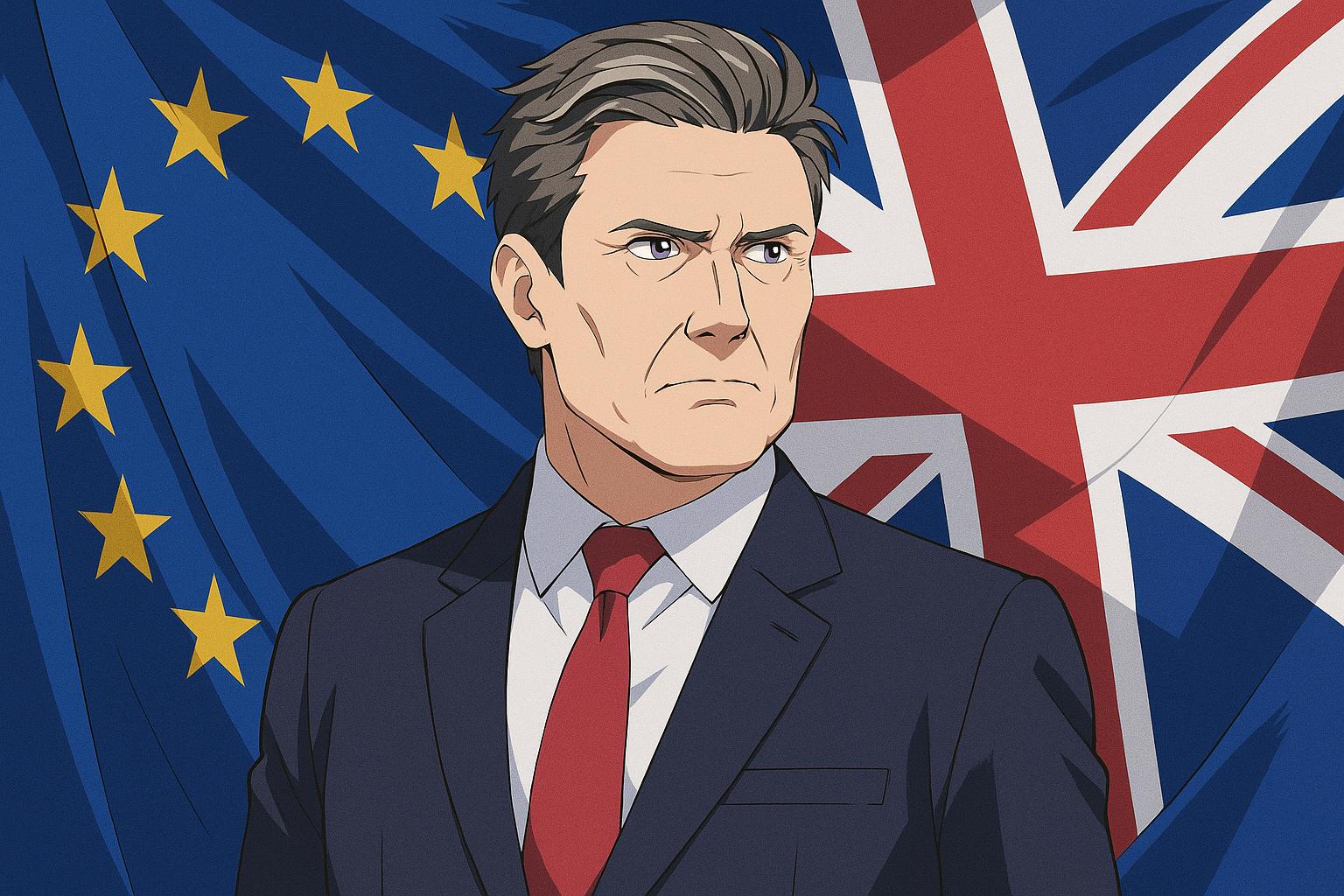Sir Keir Starmer has recently faced rising criticism over his perceived alignment with the European Union as Donald Trump warned of imposing steep tariffs on EU goods. This development adds a dimension of urgency to ongoing trade negotiations between the U.S. and the EU, with Trump threatening a 50 per cent tariff starting next month. For Starmer, who has proposed a 'reset' deal with the EU that aims to improve trade and cooperation, this backdrop raises questions about the implications for the UK's own trade relations.
Starmer's recent proposal includes significant concessions to the EU, which critics label a potential reversal on Brexit commitments. Notably, his plan, referred to disparagingly as the 'surrender' pact by some Brexiteers, aligns the UK closely with EU regulations on food standards and allows EU trawlers enhanced access to UK fishing waters for an additional twelve years. Sir Iain Duncan Smith, former leader of the Conservative Party, condemned this move, stating, "This week he stupidly went and handed ourselves over to the EU on SPS, where we have now become a rule-taker from the EU." Such sentiments echo throughout the party as concerns grow over sovereignty and potential economic repercussions, particularly if tariffs apply not just to the EU but the UK too.
The timing of Trump's threats could not be more significant; stock markets across Europe and the UK reacted swiftly, with the FTSE 100 dropping by 0.24 per cent and the German Dax and French CAC 40 experiencing even sharper declines. Analysts suggest Trump's aggressive rhetoric has dampened previous optimism around U.S. tariffs, which seemed to have subsided after trade agreements with China and the UK had been realised. The scale of EU exports to the U.S., which reached approximately €500 billion last year, underscores the potential impact of such tariffs on both sides.
Moreover, Starmer's deal includes a framework for renewed energy and defence partnerships, as well as a veterinary agreement that aims to facilitate food trade between the UK and the EU. While advocates say this could yield a £9 billion annual economic boost by 2040—albeit a figure that only marginally counteracts the estimated long-term GDP decline of 4% resulting from Brexit—critics are wary of the commitments that come alongside these potential benefits.
Political dynamics within the UK further complicate the situation. Starmer's proposed migration policy seeks to balance openness with control, suggesting a framework for revisiting asylum seeker regulations—a move that has been met with skepticism from Conservative ranks. The overarching sentiment is one of Brexit fatigue, where many citizens are wary of revisiting contentious debates, yet concerns regarding economic stability and national sovereignty remain very much alive.
As Britain navigates its post-Brexit landscape, analysts warn that the ambitions of Starmer's government to restore trust and economic ties may be tested by the complex realities of international negotiations. With the Labour Party's direction leaning towards pragmatic engagement with the EU, tensions may arise, particularly with potential implications for relations with the United States. For now, the looming threat of tariffs and the continuing critique of Starmer's EU 'reset' serve as a focal point for discussions about the future of UK's foreign trade policy and its identity on the global stage.
The need for a clear and coherent strategy has never been more pressing, as the UK grapples with the consequences of its choices and seeks to redefine its role in an increasingly fragmented global economy.
Reference Map:
- Paragraph 1 – [1], [2]
- Paragraph 2 – [1], [5]
- Paragraph 3 – [1], [4]
- Paragraph 4 – [3], [6]
- Paragraph 5 – [2], [7]
- Paragraph 6 – [1], [4]
Source: Noah Wire Services
